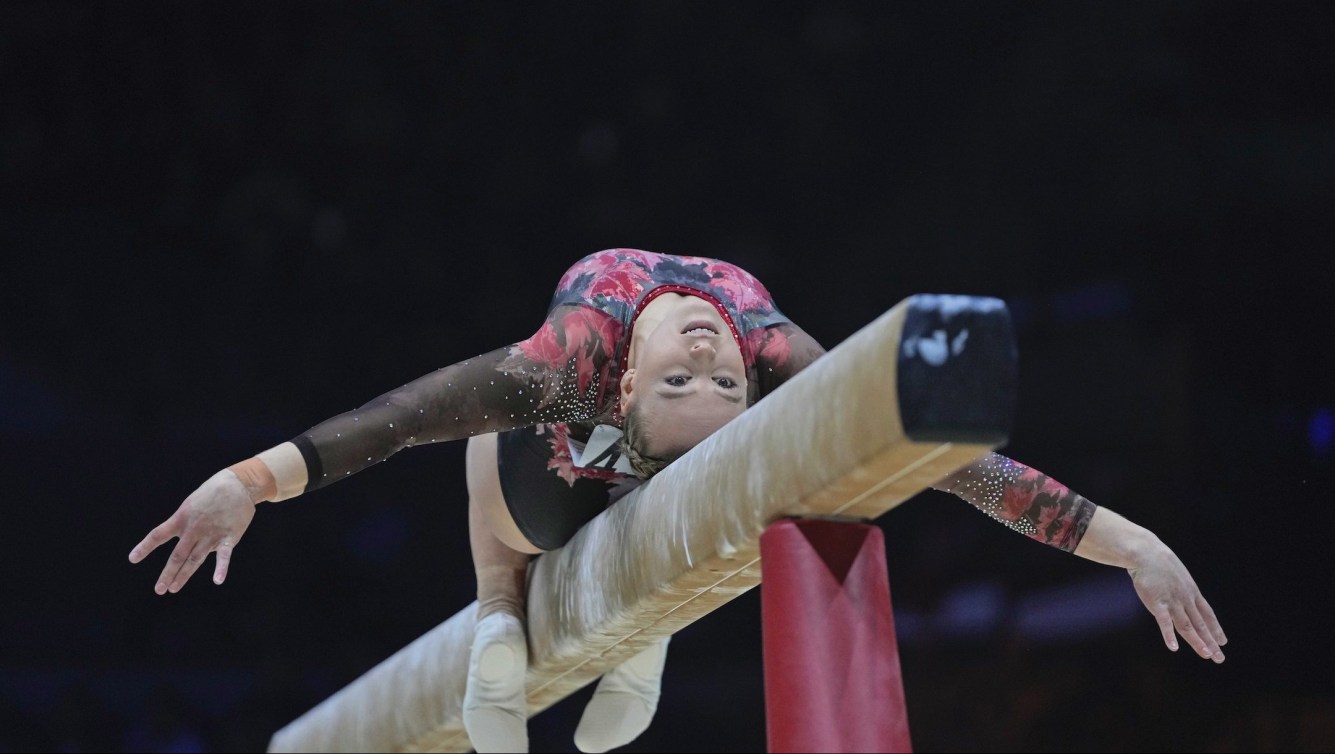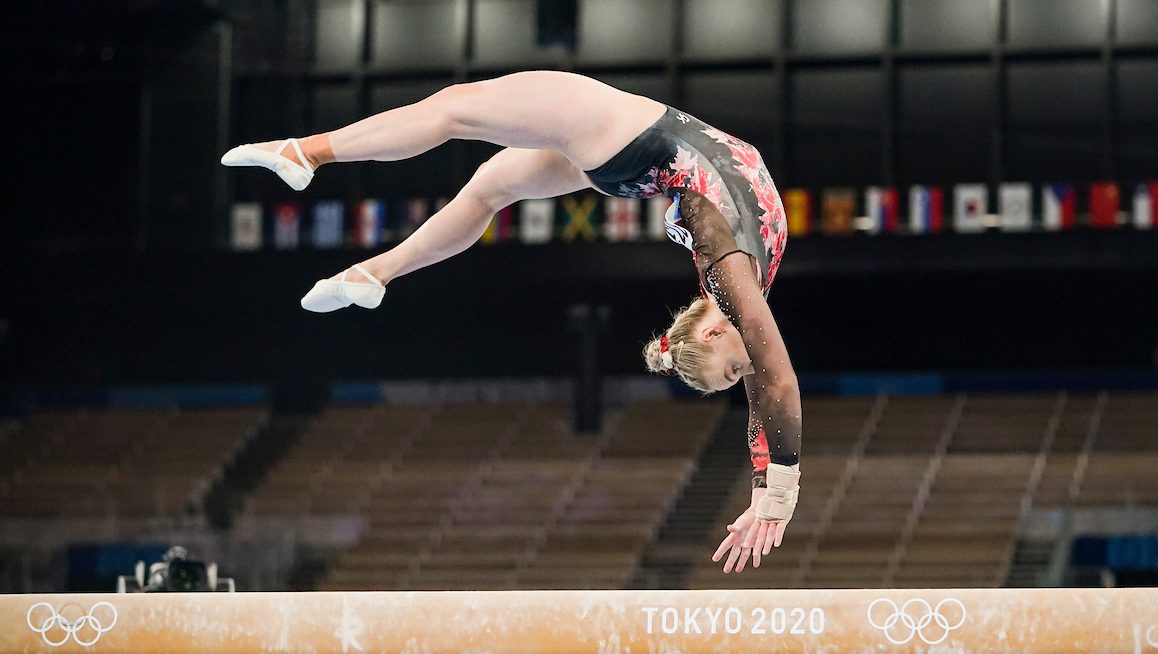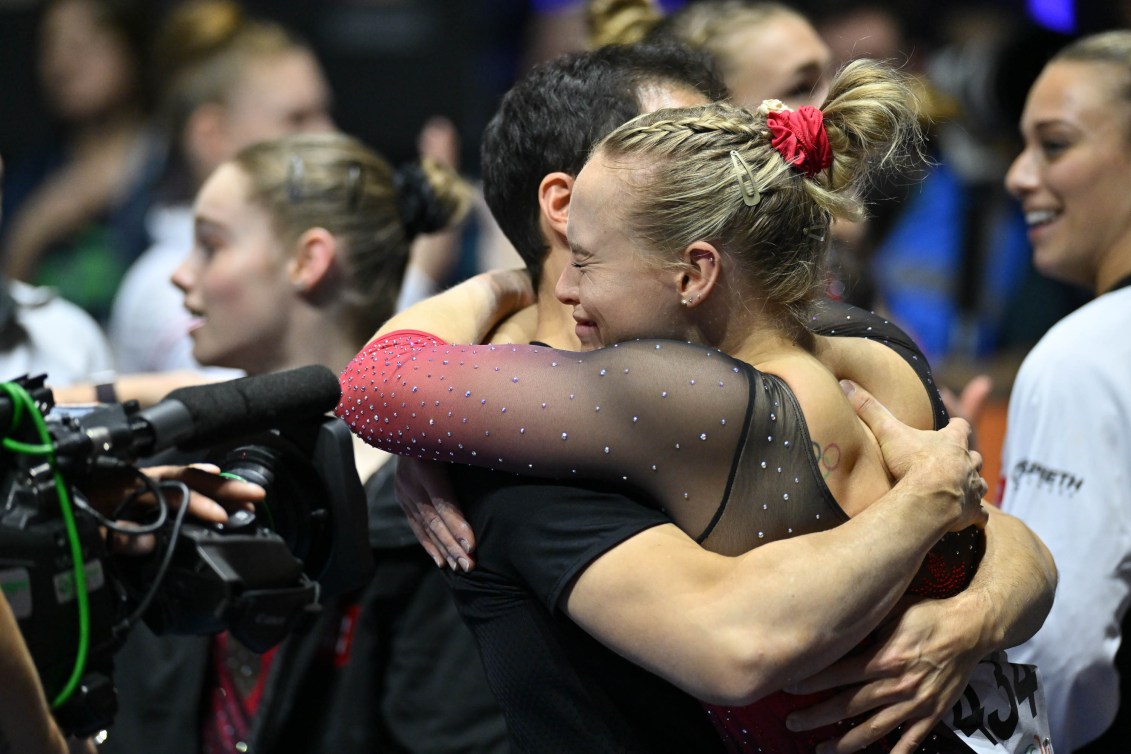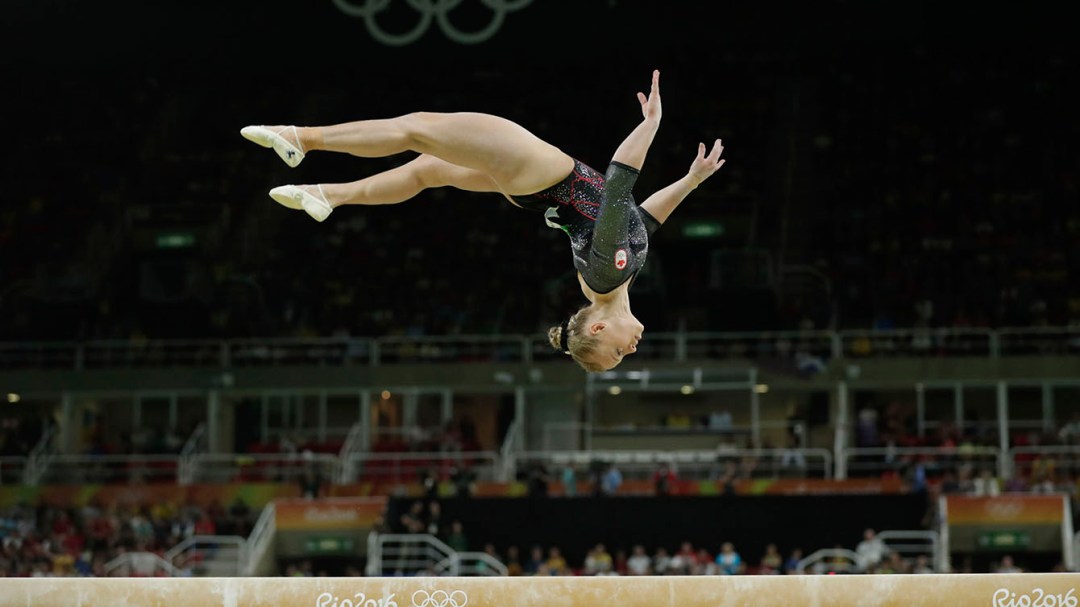Ellie Black set to be first Canadian artistic gymnast to compete at four Olympic Games
Ellie Black has carved a legacy for herself in Canadian artistic gymnastics. At 28-years-old, Black is headed to her fourth Olympic Games–a record for a Canadian artistic gymnast.
Black has built for herself a competitive resumé that speaks to her ability to rise to big moments. Over the last 12 years, she has gone from being the fresh-on-the-scene 16-year-old who surprised many when she made her first Olympic team to being a respected leader and a globally recognized icon.
Look at any list of Canadian best ever results and you will see Black’s name all over the place.
In her Olympic debut at London 2012, she helped Team Canada secure its highest ever fifth place finish in the women’s team event while qualifying for the vault final.

At Rio 2016, Black finished fifth in the women’s all-around final, Canada’s best Olympic result in the event. The next year, she became Canada’s first all-around medallist at the FIG Artistic Gymnastics World Championships, claiming the silver medal.
At Tokyo 2020, she finished fourth in the beam final–the best Olympic result by a Canadian in any women’s artistic gymnastics event–after withdrawing from the all-around final due to an ankle sprain.
In 2022, Black led the Canadian women’s team to bronze at the world championships, marking Canada’s first-ever medal in the team event. In addition to being a historic moment, the result meant that Canada had somewhat unexpectedly qualified a full women’s team for Paris 2024 in their first opportunity.
Black has, over the course of her long career, qualified for each apparatus final at least once at the world championships. Never complacent, she has persevered through several major injuries and has always pushed herself to be better, to the point of being among the world’s best on what was once her weakest apparatus.

Olympic.ca spoke to Black about her journey within gymnastics and her preparation ahead of Paris 2024.
This interview conducted in December 2023 has been edited for length and clarity.
O.ca: First things first–how is your ankle?
EB: My ankle is actually doing very well! It was a long journey to get it back to the level of being able to take the load of high level gymnastics. We tried a lot of different avenues and eventually decided that I had to go in for a scope to remove some bone spurs or bone chips that I had in the ankle that were causing some chronic irritation and inflammation. That was earlier on in 2023. Since then it’s just been recovery and managing the load that I put into it. But it’s doing really well. I competed at world championships [in 2023] on it just to kind of see how it would tolerate, and it’s been holding up.
O.ca: What was it like competing at the 2023 World Championships without the Olympic qualification pressure?
EB: It was great to just use the world championships (a) for me coming back from the scope, to get some experience and just kind of test out the ankle a little bit and (b) for the younger athletes to get some experience competing at world championships. But yes, lots of stress and pressure was taken off of us because we would have had to try and qualify at this world championships [had they not secured Olympic qualification in 2022].
The boys went through that. So we were their biggest cheerleaders there and that was stressful enough in itself. [Editor note: The Canadian men’s artistic gymnastics team qualified for their first Olympic Games since Beijing 2008]
O.ca: Your current floor exercise routine is one that has gotten a lot of love from fans. What’s the concept behind it?
EB: It was exciting because I got to debut that routine at the world championships. I think the story behind that specific floor routine speaks a lot to recent years and kind of being stuck in the middle of a storm and having to fight, having to continue to move forward, and also trying to just shut out the noise, tell people to be quiet, and focus on what I need to.
O.ca: There were some comments on social media about it being proof that you don’t have to be balletic to be artistic. When you hear those kinds of comments, how does it make you feel?
EB: I think everyone can be artistic in a different way. Floor choreography is something that I’ve worked really hard on–to perform and be creative and do something that’s outside of the normal, but do it in an artistic way with expression and emotion and feeling.
So, yes, I might not be the Brooklyn Moors-style of floor routine, and that’s okay. It’s okay to be different. I got a lot of great feedback on the routine. I think a lot of people loved it and just the passion, the energy, the emotion and the creativity that went into it.
O.ca: How have your feelings towards the different apparatus changed over the years?
EB: To be honest, I always liked vault, floor and beam. It was just bars that I didn’t used to like because I was really not that great at it. It was really foreign to me. It was really hard. It took a lot of work to learn how to use the bars, swing with the bars and understand how to become a good bar worker. And now it’s a strength of mine. It’s one of my best events. I made a bar final at the 2023 World Championships. I have a skill named after me on the uneven bars, which ironically was my worst event!
If you had told me ten years ago that I would have a skill named after me, I would think you were probably crazy to think it was going to be on bars. But yeah, I think I like the challenge of them all.
O.ca Heading towards a fourth Olympic Games, what are you most proud of when you look back at your career?
EB: Going into my fourth Olympic Games, that’s pretty incredible, just to be in that position. I’m definitely proud of getting a skill named after me in the code–that’s not something that I ever really expected I would be able to do. And it’s really hard these days, so I’m definitely very proud of that. That’s going to be something that stays in the code and other athletes will aspire to try and compete that skill.
And I’m also very proud of our team bronze that we won at the 2022 World Championships. We made history in Canada as the first ever team medal for Canadian gymnastics at a world championships. That’s something we’ve been chasing for a long time and the team is my favorite part of competition. So to be able to do that with the team I think was very special and hopefully sets up the next generations for that belief and possibility.
I’m also proud of being the first female gymnast from Nova Scotia to make it to the Olympic Games. Hopefully that also inspires other kids or athletes from, you know, smaller provinces, smaller towns to see that it’s possible. And you just have to dream big and find those people in the communities that are going to support you. And you don’t necessarily always have to leave home to go for your dreams.

O.ca: Why is the team event your favorite?
EB: The team event is my favorite because I know how hard everyone works. Being an elite athlete can kind of be a lonely road, so having a team around you, people who support you, who are on the floor with you, competing with you, and then being able to share success with them, or if it’s, you know, a downfall, you can still support each other.
There’s only a certain number of athletes who make a team and go to the Olympics. The team also goes farther than just the immediate team that’s on the floor. I look at the team and I think of everyone back home, everyone who’s helped, all the coaches, all the athletes. And so I think that’s why it’s my favorite, because it’s not just one person. It’s like the whole team behind you.
O.ca: If you take your own Olympic performances off the table, what’s your favorite Olympic moment as a Team Canada fan?
EB: Oh my goodness. I mean, Kyle Shewfelt winning our only medal in [artistic] gymnastics, was very historic and super, super inspiring. One of my favorite moments that I remember was in 2008. I was watching Elyse Hopfner-Hibbs and Nansy Damianova compete at the Olympics, as well as my coach now, David Kikuchi, who was competing there. And watching them compete was kind of like a peak moment for me because David was from my club. And if someone from my club in Nova Scotia can make it to the Olympics, why can’t I?


